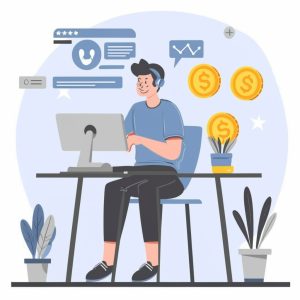
In the midst of the digital age, there’s a silent revolution brewing, one that promises to fundamentally transform the way we live, work, and interact with the world around us. This revolution is none other than the rise of Artificial Intelligence (AI). From self-driving cars to personalized recommendations on streaming platforms, AI is already deeply embedded in our daily lives, and its impact is only poised to grow exponentially in the coming years.
Redefining Industries
One of the most profound ways AI is impacting our lives is through its transformation of industries. In healthcare, AI algorithms are being used to diagnose diseases, personalize treatment plans, and even predict outbreaks before they occur. This not only improves patient outcomes but also makes healthcare more accessible and affordable.
Similarly, in finance, AI-powered algorithms are revolutionizing how we manage our money. From fraud detection to algorithmic trading, AI is enabling financial institutions to operate more efficiently and effectively than ever before.
Enhancing Personalization
AI is also ushering in a new era of personalization. Whether it’s through personalized recommendations on e-commerce platforms or curated content on social media, AI algorithms are constantly analyzing our behavior to better understand our preferences and tailor experiences to suit our individual needs.
This level of personalization extends beyond entertainment and shopping—it’s shaping the way we learn, with AI-powered platforms offering personalized learning experiences that adapt to each student’s unique strengths and weaknesses.
Empowering Creativity
Contrary to popular belief, AI isn’t just about automation and efficiency—it’s also a powerful tool for creativity. From generating art and music to assisting in the writing process, AI is enabling artists and creators to push the boundaries of their craft in ways previously unimaginable.
For example, AI-powered tools like deep learning-based image generation are being used by artists to create stunning visuals, while natural language processing algorithms are helping writers overcome creative blocks and generate new ideas.
Addressing Societal Challenges
Beyond its commercial applications, AI also has the potential to address some of the most pressing societal challenges we face today. From climate change to poverty and inequality, AI-powered solutions are being developed to help us tackle these complex issues more effectively.
For instance, AI algorithms are being used to optimize energy consumption, reduce waste, and mitigate the impacts of climate change. In addition, AI-powered tools are helping policymakers analyze data and develop evidence-based policies to address social and economic inequality.
Ethical Considerations
Of course, with great power comes great responsibility, and the rise of AI also raises important ethical considerations. As AI becomes increasingly integrated into our lives, questions about privacy, bias, and accountability become more pressing.
It’s crucial that we approach the development and deployment of AI technologies with caution and foresight, ensuring that they are used in ways that are ethical, transparent, and aligned with our values as a society.
Embracing the Future
In conclusion, the rise of AI represents a monumental shift in the way we live, work, and interact with the world around us. While the full extent of its impact remains to be seen, one thing is clear: AI has the potential to revolutionize virtually every aspect of our lives, from healthcare and finance to education and creativity.
Rather than fearing this change, we should embrace it, recognizing the incredible opportunities it presents for innovation, progress, and positive societal change. By harnessing the power of AI responsibly and ethically, we can create a future that is not only more efficient and prosperous but also more equitable and just for all.
Resources: